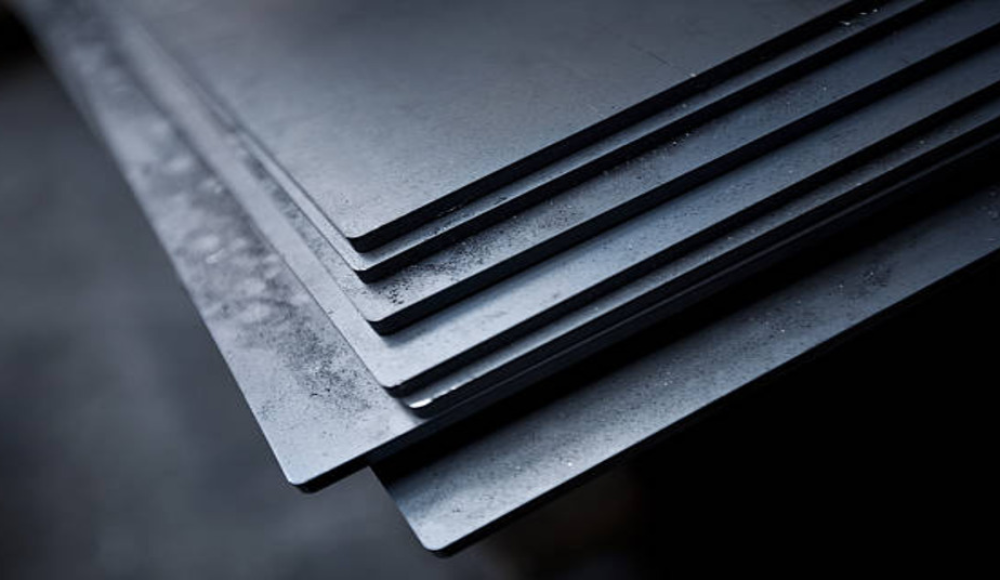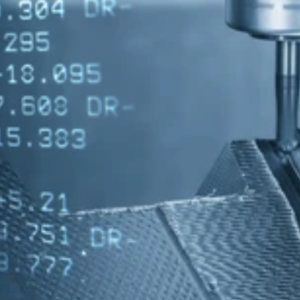Dans le travail des métaux, le titane et l'acier apportent certains avantages. En raison de leurs étonnantes propriétés chimiques et physiques, ils conviennent à divers secteurs. L’argument entre le titane et l’acier est crucial pour comprendre. Parfois, il peut être déroutant, même pour les professionnels les plus expérimentés, de décider lequel de ces métaux utiliser.. Il est donc important de connaître les caractéristiques propres à chacun d'eux..
Qu'est-ce que le titane?
Titane a une faible densité et est très résistant. La résistance à la corrosion est idéale pour favoriser la durabilité. De plus, le titane est apprécié pour une utilisation à haute température. Puisque cela implique un niveau plus élevé point de fusion. Le titane fait partie des métaux les plus récents par rapport aux autres métaux utilisés aujourd'hui sur le marché.. Cependant, il présente des défauts dans sa structure cristalline et contient des mélanges tels que du carbone, azote, et de l'oxygène. La forme chimique la plus pure du réactif, iodure de titane, contient pas plus d'impuretés 0.1%. En outre, le matériau a une formabilité et une maniabilité élevées. Malheureusement, la résistance du titane pur est inférieure. Les alliages de titane sont produits par addition de titane avec d'autres métaux. Ces alliages, qui est originaire des États-Unis. environ 60 il y a des années, sont utilisés dans des applications dans l’aérospatiale et la médecine.
Qu'est-ce que l'acier?
Acier est composé de fer, carbone, et d'autres éléments. Il offre une bonne résistance et durabilité dans de nombreuses applications dans divers contextes de fabrication.. Le carbone qu'il contient augmente sa ténacité et sa résistance à l'usure. Un certain nombre de propriétés telles que la ténacité ainsi que la résistance à la corrosion sont affectées par les éléments d'alliage.. Les aciers peuvent être classés comme carbone, alliage, et aciers à outils. Il comprend une surface non poreuse. En outre, la matière semble assez dense une fois manipulée. Construction, fabrication automobile, et d'autres industries utilisent l'acier en raison de sa résistance et de sa ductilité appréciables.
Titane vs. Acier: Huit différences majeures
En cas de choix entre l'utilisation du titane et de l'acier, alors le choix dépend de l'utilisation que l'on veut faire des deux. L'acier pourrait être mieux approprié en raison des coûts, alors que le titane pourrait être parfait pour les besoins de haute performance. Vous trouverez ci-dessous une comparaison des huit différences clés entre ces métaux.
1. Composition élémentaire
Le titane est un élément de transition qui existe sous forme de métal sous sa forme pure., et comme Ti 6-4, il contient aluminium et du vanadium. D'autre part, l'acier est un matériau produit en mélangeant du fer et du carbone avec d'autres éléments pour répondre à certaines exigences. Comme cela sera discuté plus tard, les propriétés de l'acier ne sont pas constantes selon les différents alliages.
2. Poids
Le titane est célèbre pour sa légèreté ainsi que pour son rapport résistance/poids élevé.. Cela en fait un choix populaire dans des industries comme l'aérospatiale, d'où la nécessité de le comprendre.. Acier, néanmoins, est plus résistant que l'aluminium mais est plus lourd et n'est donc pas idéal pour les conceptions soucieuses du poids.
3. Dureté
Entre eux deux, l'acier est plus dur que le titane. C'est pourquoi il est plus facile d'usiner l'acier. C'est pourquoi le titane est plus difficile à travailler, mais ses alliages peuvent augmenter sa dureté en raison des niveaux inférieurs de dureté du matériau.
4. Élasticité
En général, l'acier a une élasticité plus élevée que le titane. Le fait qu'il soit élastique améliore son usinabilité et revêt une importance primordiale dans la fabrication des articles.. Le titane a également une élasticité relativement faible, ce qui le rend un peu complexe à travailler..
5. Durabilité
Les deux métaux sont solides, mais le titane résiste bien mieux à la corrosion ainsi qu’à la température.. En général, l'acier a de hautes performances dans diverses circonstances, mais à cause de l'inclusion de fer, le matériau n'est pas à l'abri de la rouille. Le titane s'avère parfaitement adapté à une utilisation dans des conditions difficiles en raison de sa nature hautement corrosive..
6. Résistance à la traction
Le titane offre des rapports résistance/poids élevés et, en tant que tel, est utile dans les applications soucieuses du poids. Toujours, l'acier est parfois préféré pour sa résistance globale qui est plus résistante que l'aluminium pour les applications exigeantes.
7. Applications courantes
Le titane est principalement utilisé dans les applications aérospatiales, chirurgie, et sports mécaniques. Ils ont une haute résistance à la traction, admirable résistance à la corrosion, et une conductivité thermique raisonnable pour convenir aux opérations à haute performance. Acier, d'autre part, est utilisé dans la construction, fabrication, et l'industrie automobile en raison de sa flexibilité et de ses prix abordables.
8. Prix
Le titane est plus coûteux que l'acier en raison de son point de fusion élevé et de sa difficulté à traiter.. L'acier est beaucoup moins cher en raison de la disponibilité du fer et de techniques de production relativement plus simples.. Les prix de l'acier dépendent de l'alliage et certains des types les plus chers incluent le chrome ou le titane..
Ces informations sont essentielles pour permettre de sélectionner le bon matériau à utiliser lors de la réalisation d'un projet..
Quand utiliser le titane?
Le titane est l'un des matériaux les plus appropriés pour une utilisation dans les cas où le rapport résistance/poids, corrosion, et la biocompatibilité sont primordiales. En raison de son rapport résistance/poids élevé, il est largement utilisé dans l'industrie aérospatiale où le poids est un facteur critique et où les performances ne peuvent être compromises. Aussi, le titane est entièrement compatible avec les tissus corporels et est donc utilisé dans les équipements médicaux comme les implants et le matériel chirurgical. Le titane fonctionne également bien dans les applications où l'équipement associé est exposé à des températures fluctuantes ou à des conditions sévères pour que sa stabilité soit préservée..
Quand utiliser l’acier?
Le choix se porte sur l'acier au cas où le budget serait une priorité. Parce qu'en le comparant au titane, l'acier est relativement moins cher. Les coûts de traitement sont également moindres puisque l'acier est plus facile à usiner, et le matériau est disponible dans une large gamme d'alliages pour répondre à des exigences particulières. Le coût du matériau de l'acier est relativement faible, il peut donc être utilisé de préférence dans les industries de la construction., industrie automobile, et les industries de fabrication de machines en raison de sa durabilité et de sa résistance. Bien que l'acier présente de bonnes propriétés mécaniques, il ne peut pas être utilisé dans des applications médicales ou aérospatiales car il n'est pas biocompatible et est plus lourd que les alliages d'aluminium utilisés dans la construction aéronautique.
Titane vs. Acier: Applications
Le titane peut également être décrit comme un matériau à haute résistance., bon rapport sections/poids ainsi qu'une excellente résistance à la corrosion. Cependant, il est généralement plus difficile de travailler le titane que l'acier, car le matériau est difficile à couper.
Où pouvez-vous utiliser le titane?
- Aérospatial: Le titane est le plus couramment utilisé dans les avions, hélicoptères, et des missiles, donc dans des supports et des cadres et autres structures similaires.
- Automobile: Il existe aujourd'hui de nombreuses applications du titane dans les voitures, les plus courantes étant les systèmes d'échappement., pare-chocs, et disques de frein pour n'en citer que quelques-uns.
- Médical: Le titane est le matériau idéal pour une utilisation dans les implants, notamment les arthroplasties de la hanche et du genou, ou dans le boîtier des stimulateurs cardiaques, car il est non toxique et n'a aucun effet néfaste sur le corps humain..
- Industriel: En raison de sa forte résistance à la corrosion, il est utilisé dans les équipements industriels tels que les échangeurs de chaleur., traitement chimique, et les vannes.
Où vous pouvez acier?
Acier, d'autre part, est assez insensible à la rouille, porter, et la corrosion et pour cette raison, il est utilisé dans tous les domaines de la fabrication.
- Ustensiles de cuisine: C'est pourquoi l'acier est utilisé dans la fabrication des récipients de cuisson, couverts, et autres ustensiles nécessaires à la cuisine en raison de sa solidité.
- Produits chimiques industriels: De par sa nature, l'acier est mieux utilisé dans les canalisations, fabrication automobile, et dans la production d'instruments médicaux.
- Construction: L'extérieur des bâtiments et des structures artistiques est en acier car il est résistant et présente un bon attrait visuel..
- Automobile: À l'intérieur d'une voiture, des pièces en acier sont utilisées dans l'échappement, radiateurs, et d'autres applications car le matériau est ductile et ne se corrode pas facilement.
Quel métal convient à votre projet?
Cependant, le titane est utilisé de manière interchangeable avec l'acier en fonction du projet en cours. Il est crucial de considérer certains facteurs avant d’employer les deux. Ceux-ci incluent la résistance des matériaux, la capacité de traiter, et leur compatibilité avec l'environnement.
Le titane est parfait pour les personnes qui recherchent un matériau léger mais dont la résistance est équivalente à celle de l'acier et qui ne rouille pas.. Pour de telles raisons, c'est idéal, en particulier à des fins aérospatiales et médicales où la résistance de la surface est la préoccupation la plus critique.
Même si le titane est relativement cher, l'acier est relativement bon marché. En plus, il est plus facile à travailler ou à façonner que le titane et également plus facile à couper. Aussi, l'acier contient des alliages produits en fonction des caractéristiques requises, Par exemple, anticorrosif ou à traction supérieure.
À la fin, le choix entre l'acier et le titane dépendra du projet en tête.
Plateaux de contact pour l'usinage de précision du titane et de l'acier
Pour des exigences d’usinage précises avec de l’acier ou du titane, Précision au sommet est votre bon partenaire. Nous sommes spécialisés dans la fabrication de composants de précision et complexes utilisant des méthodes d'usinage CNC de pointe sur l'acier et le titane..
Notre personnel professionnel garantit la production de pièces de haute qualité pour diverses industries dont l'aérospatiale, automobile, médical, et industriel. Grâce à la meilleure précision, vous obtiendrez une haute précision, faibles tolérances, et des finitions de surface optimales.
Appelez-nous aujourd'hui pour savoir comment vous pouvez bénéficier de nos services pour votre prochain travail d'usinage de pièces en acier ou en titane!



